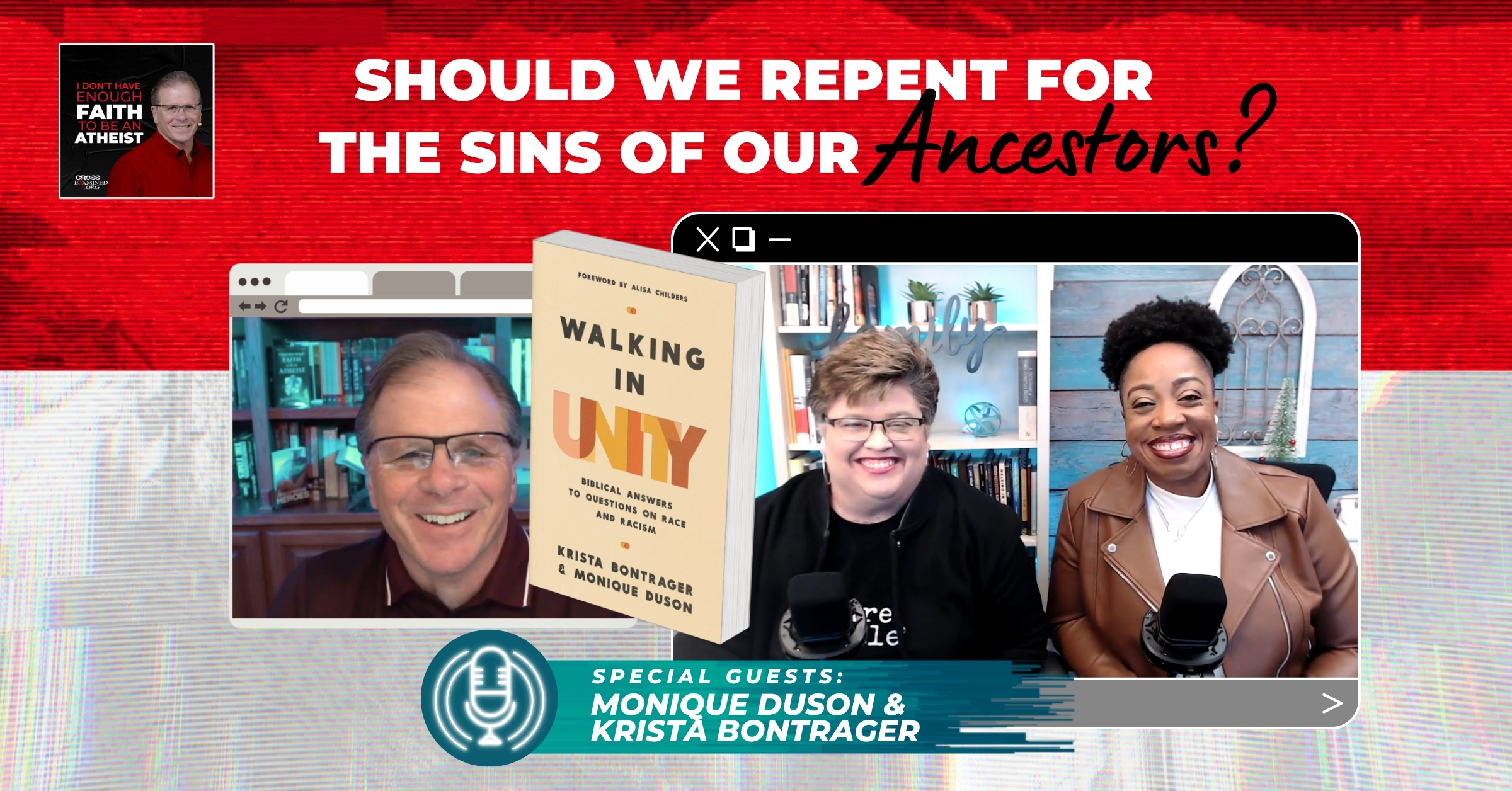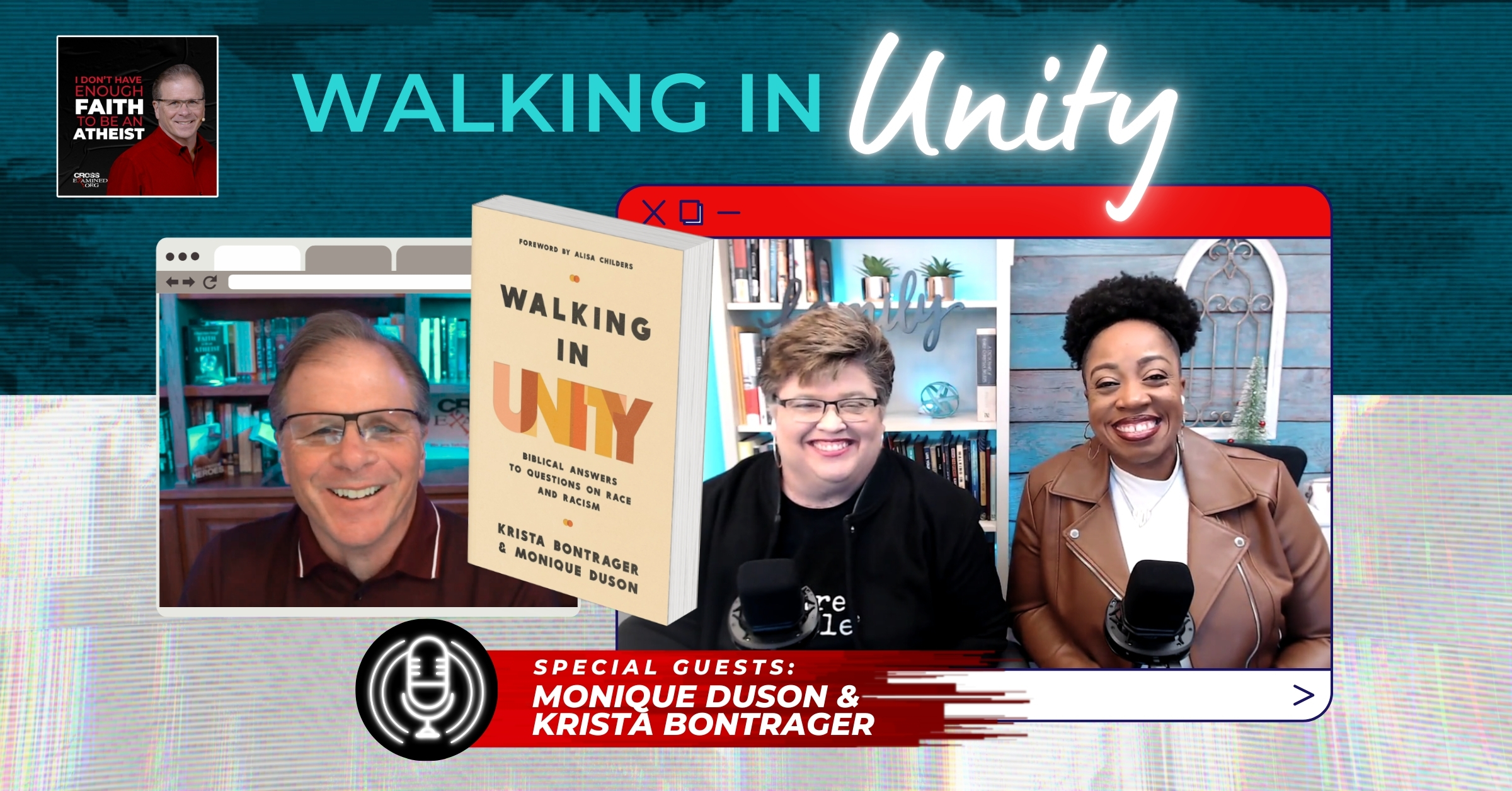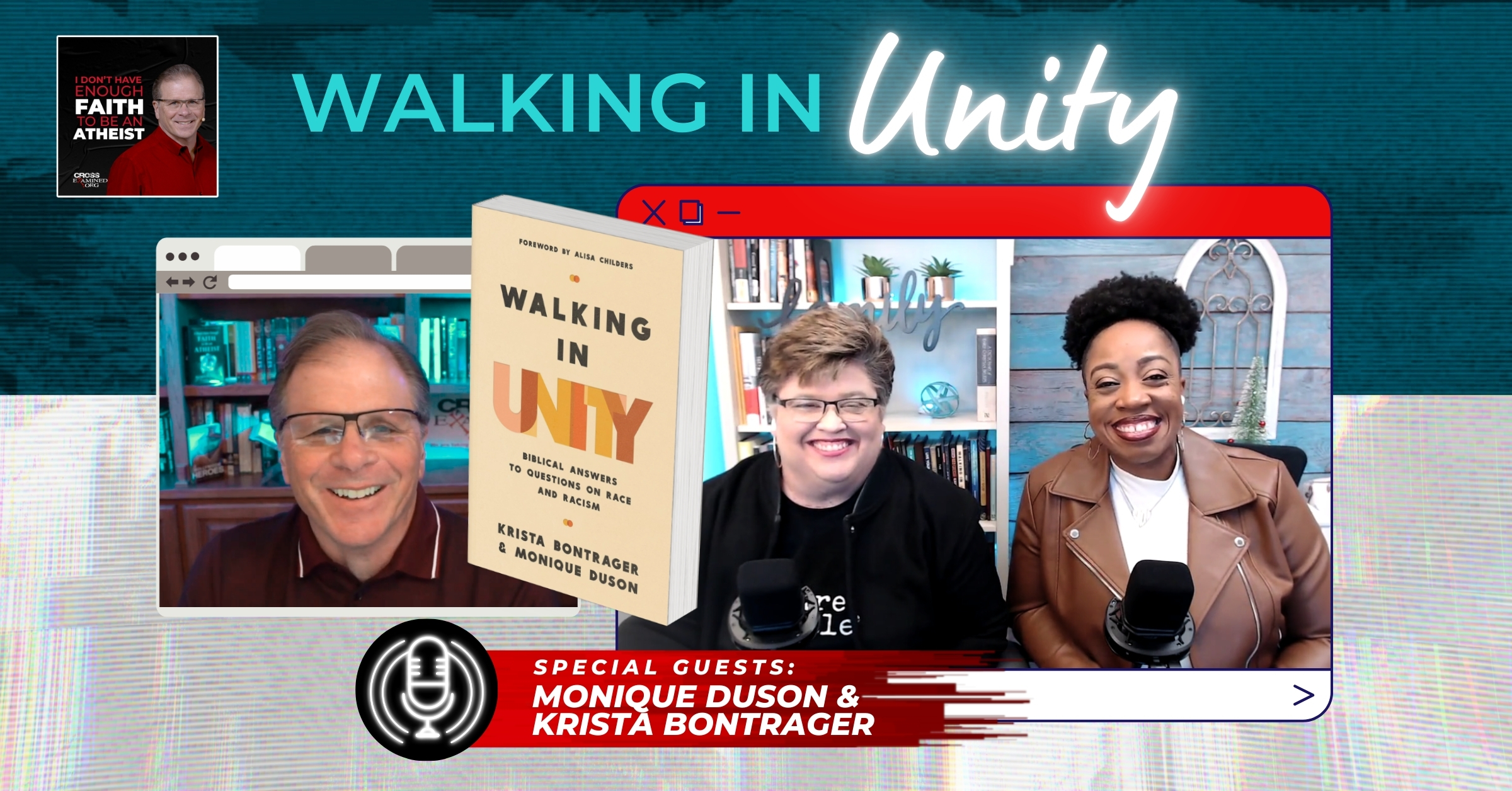By Luke Nix
Who has not been exposed to or may be even involved in discussions of controversial topics these days?
It seems that talk of politics, race, religion, and a whole host of other controversial topics are swirling around us everywhere we go. Some topics we can ignore and avoid, and others we get sucked into. Some discussions we get reluctantly and others we get into too eagerly. There are numerous pitfalls to having these discussions that we all want to avoid, so today, I want to offer eight tips for discussing controversial topics that will hopefully help your discussions be more productive and respectful. Being that the USA is in an election year (2020), politics seems to be on everyone’s mind, so let’s start with this quote from a book that I reviewed a few years ago entitled “Before You Hit SEND: Avoiding Headache and Heartache” by Emerson Eggerichs to set the stage:
“Some people enter politics because they derive personal fulfillment from the ‘gotcha’ approach to issues. It isn’t about what is true but about the political chess game. The key is to put a better spin on a matter than the other candidate and to put the opposition in checkmate…In political circles the rule of thumb is never admit a mistake or that you don’t know something. Thus, keep talking in an interview to sound like an expert, all the while aware that you don’t know. Feeling on the hot seat, and determined never to be wrong, but fully cognizant that the information is insufficient or incorrect, keep moving your lips, weaving and ducking as best as your polemical skills permit.”
If this sounds all too familiar to you and you’re tired of it, keep on reading!
Controversial Topic Discussion Tip #1: You Could Be Wrong
It is important to recognize that we could be wrong about what we believe about reality. Interestingly enough, a challenge could actually be a blessing in disguise. It could be an opportunity for us to let go of false beliefs and acquire true ones. Of course, challenges do not always result in a changed belief; they can also result in a more nuanced and more strongly defended belief. But regardless of the ultimate result of a challenge, when we see it as an opportunity, we give the other person a respect that is often missing from discussions today.
When we demonstrate that we can have a rational discussion where arguments are presented and granted when they are sound, we demonstrate that we are committed to truth. We demonstrate that we understand that we are not perfect and do not necessarily have everything figured out. We also demonstrate that we are willing to hear others out, understand the reasons that they hold the other view and carefully consider those reasons. Greg Koukl summarizes this quite well in his book “Tactics: A Game Plan For Discussing Your Christian Convictions“:
“A commitment to truth — as opposed to a commitment to an organization — means an openness to refining one’s own views. It means increasing the accuracy of one’s understanding and being open to correction in thinking. A challenger might turn out to be a blessing in disguise, an ally instead of an enemy. An evangelist who is convinced of her view, then, should be willing to engage the best arguments against it.”
Controversial Topic Discussion Tip #2: Find Common Ground
This is so important. Regardless of who you are discussing a controversial subject with, you can find some sort of common ground with them. The very fact that we are all created in the Image of God provides a strong set of commonalities that we can begin with. If we hold to the same worldview, in general (this discussion just being one of working out the details), then it is important to recognize that up front. Even if you remain in disagreement at the end of the conversation and agree to pick up the conversation again later, it is important to affirm where agreement exists. Again, Greg Koukl offers wisdom here from “Tactics“:
“As a general rule, go out of your way to establish common ground. Whenever possible, affirm points of agreement. Take the most charitable read on the other person’s motives, not the most cynical. Treat them the way you would like others to treat you if you were the one in the hot seat.”
Controversial Topic Discussion Tip #3: Assume Good Will
Speaking of charitable motives, always assume this. No one likes to have their character attacked, particularly when they know that they are not deserving of such an attack. Even if we do not attack one’s character verbally in our discussion, we may still be doing so in our minds as the conversation progresses (or regresses). It is important that we focus on the person’s claims and arguments for the claims rather than their motives because their motives logically have no bearing on the truth of their claims.
Further, when we assume good will, we are more willing to understand where someone is coming from. When we understand where they are coming from, it gives us an opportunity to address a deeper concern that they have with our opposing view- we can offer them a logically, rationally, and evidentially supported alternative that takes into account their deeper commitment. When we understand that the other person ultimately has good intentions, it allows us to show kindness while we speak and defend truth. In his book “Before You Hit SEND: Preventing Headache and Heartache,” Emerson Eggerichs lists out the important reasons why kindness in controversial topic discussions is vital:
“Kindness eases others, which enables them to hear the substance of our concern. Kindness demonstrates and builds trust. Kindness affects the emotions, which is key when seeking to inform or persuade. Kindness maintains a relationship, and relationship determines response. My communication kindly demonstrates who God is.”
Controversial Topic Discussion Tip #4: Listen To Understand
Listening is vital to the discussion. If we are truly there to defend a position and, hopefully, convince the other person that our view more closely matches reality than the one they presently believe, we have to be able to properly understand their current view. It does us no good to argue against a view that the person does not hold. If we have soundly defeated a view and offered ours as an alternative, but the view that we have defeated is not what the other person holds, we have not given them a reason to abandon their view in favor of ours. We’ve given them reasons to not accept that other view, yes, but we have not given the reason to change from the view that they currently hold. Listening takes patience. We cannot always be eager to sneak in a rhetorical jab or present the next logical “gotcha!” We need to focus on what the other person is saying in order to understand to ensure that what we are about to present actually addresses and applies to their claims.
Controversial Topic Discussion Tip #5: Ask Honest Questions
One of the great ways to listen is not just being quiet and focusing but asking clarifying questions. Questions like “what do you mean by that,” or “how do you get from X to Y in your logical thinking” helps us to learn about other views and the reasons why people hold those views. Asking honest questions in order to learn demonstrates that we are willing to consider and engage other views (Tip #1) as they actually are rather caricatures of those views.
Some people may have even considered the views that they espouse more deeply. Foundations and implications may not have crossed their minds. This is also where asking honest questions can be helpful. Jonathan Morrow speaks to the wisdom of asking questions:
“People may not ask…questions of their own beliefs or think carefully about the way they view the world, but they still have a worldview. And it affects every area of their lives. Every person–knowingly or not– filters the information that enters their minds through their worldview. They then make sense of that information based on their worldview. This process is automatic and the filtered information shapes their beliefs and influences how they function in society, including the smallest decisions they make.”
Asking honest questions demonstrates to the other person respect and demonstrates a spirit of humility a heart of a student. Listen, understand, and appropriately critique in a loving and kind manner. I will refer you to both of the books already mentioned above for more on this tip.
Controversial Topic Discussion Tip #6: Get Your Facts Right
This cannot be emphasized enough. It is important that our claims match reality, meaning that we need to get our facts right. This affects the persuasiveness of our presentation in multiple ways. First, if we do not have our facts right, then any conclusions that we draw from those incorrect claims will be questionable. We simply cannot use false claims about reality to come to true conclusions about reality. It is not logical, and no one would be reasonable to accept a conclusion that is dependent upon something false for its truth.
Second, when we do not have our facts right, it appears that we do not value truth enough to verify claims. This could be because we are gullible, lazy, or simply just want to believe that our conclusion is true, so we’re looking for any confirmation of it. When we do not check the claims we make for truth before we use them to persuade someone to our view, it demonstrates that we are more committed to a view than to what is true.
Third, if we value a particular view over what is true, why should anyone trust us about anything else that we claim? Getting our facts right is not just an issue of making a sound argument, but an issue of personal character and trust. If we do not take the time to investigate our claims before using them, we should not be trusted. I’ll quote Eggerichs again, here:
“Perhaps in many cases we didn’t know it was untrue. No harm, no foul. Even so, an honest error in judgment does not make it okay, especially when we repeatedly make such mistakes. The real point here is to the lazy and neglectful individuals who keep making mistakes and claim they did not know the truth. They may be innocent, but one becomes guilty of carelessness and inattentiveness. We must aggressively get our facts straight to avoid a routine of ‘honest’ mistakes.”
Controversial Topic Discussion Tip #7: Avoid or Qualify Speculation
Part of getting our facts straight is to communicate the difference between what we understand to be facts and what we are speculating about what those facts mean for the future. Speculation can get quite emotional because it tends towards two extremes: either a “best-case scenario” or a “worst-case scenario.” The first gives people a utopianistic feeling and expectation. The second gives people a fearful feeling and expectation. Both of those are strong drivers of strong action and rhetoric, but they are only founded in speculation. We do not want to give someone a false impression and cause them to react according to that falsehood.
Speculations about all sorts of things take place in conversations, but it seems that speculations about future events and individuals’ motives tend to be the most damaging. Obviously, no one can see the future. We can certainly look to history and notice a pattern of certain conditions preceding or coinciding with certain events, but because we are not omniscient and may be overlooking an key condition that may change the whole outcome, speculating about the future needs to be done carefully and with qualification. Some people may choose to just avoid it altogether.
Obviously, too, no one can see the heart of another individual. When we speculate about the “pure evil” or “purely altruistic” motives someone may have for defending a particular political policy or view of the world, we tread on dangerous territory here, as well. We do not want to be guilty of encouraging character assassinations or character glorifications. The character of a person has no logical bearing on the truth of their claims, so we need to focus not on their character but on the claims being made to argue for or against their truth. It is wise to simply avoid speculating about motivations for holding a particular view.
Controversial Topic Discussion Tip #8: Learn to Use Reason Well
Communicating truth to those we wish to persuade is only part of the discussion. The other important part is using truths together to come to reasonable and true conclusions and to avoid using truths together to come to unreasonable and false conclusions. We may present a series of true statements, but if we present them together in such a way that they do not connect logically, then we run the risk of believing and promoting unreasonable or false conclusions. We also run the risk of being unable to identify where another’s reasoning has gone wrong even though we know that their conclusion is incorrect.
Norman Geisler describes logic like this:
“Logic is a way to think so that we can come to correct conclusions by understanding implications and the mistakes people often make in thinking.”
Going back to speculation for a moment: Speculation often results from the mistakes using of true claims to support implications that do not follow. The reciprocal error is made, as well: an implication (conclusion) that either necessarily follows from the true propositions and the valid reasoning or true propositions when taken together yield a high probability of or are all best explained by an implication are accused of being speculation. This error often results from the misunderstanding of logic and mistakes in thinking. But when true claims are used correctly, logic is understood correctly and we adjust our thinking to match both, both errors regarding the acceptance of speculations and rejection of implications can be avoided.
There are numerous fallacious ways to reason using true claims that will lead us and others to false conclusions. We need to learn not only how to use logic (connect true claims together) correctly, but we also need to learn how to avoid fallacies in our attempts to connect one true claim to another true claim. When we learn these, we not only can guard our communication, guide our discussion, and clearly present our case, but we can also analyze others’ claims and be able to respectfully and lovingly ask questions that will guide the other person to see the error that they are making.
As a bonus, learning to reason well gives the first tip I offered in this post (recognize that you could be wrong) a solid and reasonable foundation. The first tip is not a call to be malleable in your thinking simply because we don’t want to offend or we all want to get along; it is a call to recognize that we all hold wrong beliefs about this world and that those wrong beliefs can be positively identified, removed from our worldview, and replaced with true beliefs about the world. Learning to reason well gives us the tools to adjust our beliefs to match reality and to communicate that knowledge to others. Finally, if you want to learn how to reason well, I highly recommend the book “Come, Let Us Reason” by Norman Geisler for its introductory view of logic that is easy to follow for anyone who desires to learn.
Recommended resources related to the topic:
American Apocalypse MP3, and DVD by Frank Turek
Correct, NOT Politically Correct: How Same-Sex Marriage Hurts Everyone (Updated/Expanded) downloadable pdf, Book, DVD Set, Mp4 Download by Frank Turek
The Case for Christian Activism MP3 Set, DVD Set, mp4 Download Set by Frank Turek
You Can’t NOT Legislate Morality mp3 by Frank Turek
Fearless Generation – Complete DVD Series, Complete mp4 Series (download) by Mike Adams, Frank Turek, and J. Warner Wallace
Luke Nix holds a bachelor’s degree in Computer Science and works as a Desktop Support Manager for a local precious metal exchange company in Oklahoma.
Original Blog Source: https://bit.ly/2BkId3m





